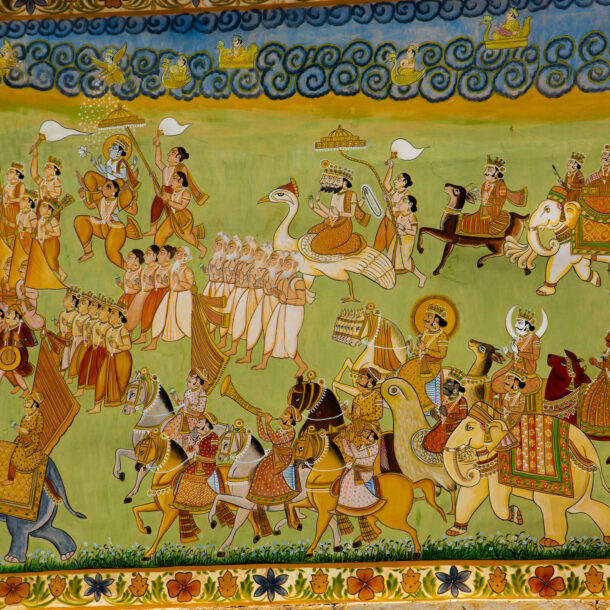
Such a huge target, I may not be able to complete it within the deadline…
I am in a big problem with which I would not be able to deal…
Do you know, such a wide competition over there to get through it this time?
In our regular lives or in our professional lives, we often encounter situations or challenges that we fear dealing with, giving up, or accepting defeat, even before we analyze or think about how to tackle them. The first thing we do is step back and consider the very thought of the size of the challenge or the target, yes, the size of the opponent (challenges). There begins the fear of failing without facing or even prior to getting into the challenge.
No matter how big your opponent is, until and unless your approach or strategy is extraordinary, nothing matters. Even if you have some fat team and no approach, you are going to fail. Here the opponent can be challenges of your life and your own thought process.
First, you must believe in yourself, your strengths, and your abilities to win over your opponent. The beauty of this approach lies in not confronting the enemy all at once; rather, divide the big target into smaller unit targets and deal with them one by one to understand and control the situation or target with your unique capabilities.
Here the focus should be more on restricting the opponents than defeating the enemy at once, relieving from the thought and stress of how strong the opponent is. This will help you to concentrate on a game plan as a team, as every input from every team member matters to achieve small unit targets. This attitude usually makes the opponents feel relaxed, and this little bit of relaxation gives scope for your enemy to commit mistakes and ultimately lose his strength.
Learning From Baji Rao On How to Break The Big Enemy With No Force
I suggest you read about the Battle of Palkhed between Baji Rao Peshwa and Nizam. This is a classic example of how to deal with tough enemies, even if you are not placed well.
When the Nizam of Hyderabad, with full force, wanted to attack Satara, the capital of Marathas, the Nizam army was far more powerful in size and arms than the Marathas’. King Sahoji asked Baji Rao to return from his campaigns from Khandesh and save the capital. Baji Rao, on looking at the size of the Nizam army, if he went for a big war, would result in great loss and may also lose the battle, as the army was big.
Baji Rao, instead of having fear looking at the size of the army, moved towards the north and started capturing all the provinces of Mughal in Gujarat and got a complete hold of Gujarat. Taking the help of armies in Gujarat, he threatened the Nizam, which made Nizam stop his trails going towards Satara and instead march down south. Nizam base was located on the banks of Ganga near Palkhed, as Baji Rao already occupied all the places surrounding it and cut off Mughal army support, Nizam was blocked.
Bajirao waited until all the supplies Nizam was carrying were finished and cut off further food and the rest of the supplies. That left Nizam and a huge army morally down. Then Baji Rao sent his small army, which was sufficient enough to threaten the Nizam, and in fear, Nizam accepted his defeat. Baji Rao, without even waging direct war on Nizam, defeated him.
Baji Rao never took a defensive approach, though Sahoji insisted. Instead, he replied, ‘To cut a tree, you do not cut all the branches and the trunk—the best way is to strike at the roots.’
Bajirao made the best use of his cavalry and first blocked Nizam ul Mulk and all the sources from supporting Nizam of Hyderabad. Baji Rao didn’t look at the size of the opponent. He located the enemy’s strengths and weaknesses and then started a series of parallel attacks on all those possible supporters of Nizam in the north. Then, finally, all his parallel divisions merged at a point where Nizam was brought down mentally, leading to failure.
Bernard Montgomery, British Army General, quoted the Baji Rao’s victory of Palkhed as a “masterpiece of strategic mobility.”
Our history has a lot of lessons like this, all we need to do is respect legacy adhered to you and learn from them.
Conclusion
“Every battle is won before it’s ever fought.” ― Sun Tzu
So, dear friends, modularize your approach to your enemy situations with your mobile warfare strategies, conquer all the supplies that strengthen your enemy, and win your enemy without fighting the battle.